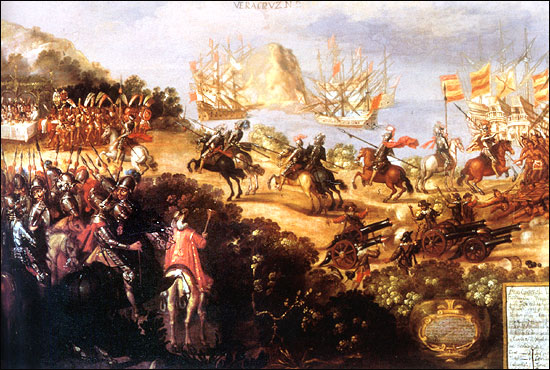
The ethics of war might be the single area of study within ethics for which it is most difficult to imagine a decolonial approach. War is, of course, one of the primary tools of imperialism. Very recent events such as the targeted assassination of an Iranian military leader in Iraq and the presidential pardon of former U.S. servicemembers who committed war crimes against civilians only serve to confirm that fact. Though the tradition of just war reasoning attempts to introduce ethics into the theory and practice of armed conflict, many of this tradition’s critics suggest that ethical discussions about war have in many historical cases done as much to enable war as to restrain it. My own recent work, for example, has focused on how just war reasoning has functioned to enable harm to noncombatants by facilitating the evasion of responsibility for inflicting and responding to such harm. Here, I want to briefly consider how a decolonial approach to ethics can help to explain the degree to which this enabling is not merely an accidental outcome or intentional distortion of, but is rather an intrinsic characteristic of, modern just war reasoning—and, more significantly, how such an approach might help to counter it: by recognizing and treating vulnerable persons in war not merely as human rights-bearers but as embodied, relational, particular human persons.
In his essay on decolonial ethics, Nelson Maldonado-Torres suggests that to fully understand the colonial implications of our modern concepts of race and religion, we must critically examine the ways they were transformed during the “age of discovery.” Similarly, to address whether and how just war reasoning is a colonial discourse, we must look at the early modern period in which much of contemporary ethics of war is founded. Doing so reveals that the justification of colonial violence was in fact one of the primary objectives of highly influential just war thinkers.

Francisco de Vitoria (1483–1546) and Hugo Grotius (1583–1645), often regarded as two of the most significant figures in the modernization of just war theory, were both motivated to write about war in response to the contemporary colonial activities of their respective homelands (Spain and the Netherlands). While this context has been widely recognized by scholars of the history of the just war tradition, few have offered a more critical account of how their resulting just war theories were themselves tools of colonialism. One exception is Richard Tuck. Tuck emphasizes the way Grotius, motivated by a desire to defend the violent activities of Dutch companies in the East Indies, expanded individual rights to include the rights of private individuals and companies to punish violators of natural law and to seize land deemed uncultivated.[1] This new understanding of natural rights, according to Tuck, had “often brutal implications” (108).
Grotius is sometimes characterized as unique and innovative in his use of just war arguments to support imperialism. Vitoria, by contrast, is often considered to have been strongly opposed to describing the conquest of indigenous peoples as justified war, in part because he recognized indigenous people as rights-bearing human beings.[2] However, as Ashley Bohrer has recently noted, while Vitoria did reject the popular claim that Europeans could justly punish indigenous peoples for reasons such as their lack of Christian faith, he yet endorsed Europeans’ right of “self-defense” against indigenous people who prevented Europeans from exercising their natural right to engage in free travel and commerce in any part of the world.[3] Indeed, as Bohrer puts it, for Vitoria,
The inclusion of indigenous peoples in the universal brotherhood of humanity had the effect of binding them to a putatively equal and universal system [of global commerce], even if it had vastly unequal effects…. [P]recisely because Amerindians are rational humans, they are bound by the laws of nature to accept the Spanish colonial presence. (29)
In a different context, feminist philosopher Kate Manne makes a similar argument about the workings of misogyny; misogyny does not rest on the assumption that women are not human beings but rather requires the identification of women as responsible human beings, such that certain women can then be identified as having failed to meet their socially defined responsibilities (xv–xix).
What these accounts, taken together, suggest is that there is a way in which, in spite of the apparent progress they represent from earlier discourses that made identification as “Christian” the prerequisite for land ownership and protection from attack, seemingly universalizing concepts such as “humanity” and “rights” can imply symmetry where it does not actually exist. Moreover, moral discourses based on these concepts can force vulnerable populations into systems that make claims to equality but are in practice aimed at their own domination and exploitation, and that enable appeals to claims of violation of natural law (or dereliction of natural duty) to justify treating someone as less than human. Just war reasoning generally presumes a kind of symmetry of rights and duties between belligerents; in recent years, more just war thinkers have begun to question this presumption, focusing on issues such as the increasing frequency of asymmetric warfare and whether combatants on either side of a conflict necessarily share “moral equality.”
But less attention has been given to an even more dramatic asymmetry—one that may be more analogous to the relationship between invading Europeans and indigenous peoples: that between combatants (and civilians living in combatant states where war is not being fought) and noncombatants living in regions where armed conflict is taking place. The protection of civilians from direct harm is a longstanding value of just war reasoning. Medieval canon law listed classes of people (such as clerics, travelers, and farmers) whose social roles meant that they did not participate in war. Because people in these classes were innocent (meaning that they did not perpetrate harm to others), targeting them was considered unjust and dishonorable. This reasoning is similar to classical Islamic jurisprudence that identifies protected classes of people based on their lack of participation in war.[4]
Modern western just war theory’s principles of discrimination and noncombatant immunity recognize noncombatants as a single class made up of persons whose rights as humans preclude their being intentionally targeted during war (unless they give up those rights by participating in warfare as combatants). But those same rights do not prevent a vast range of harms understood as unintentional (what is typically characterized as “collateral damage”), nor do they entitle noncombatants to the redress or repair of such harms when they occur. Indeed, much as defining indigenous persons as humans was central to Vitoria’s argument that Europeans might use armed force against them in self-defense, Neve Gordon and Nicola Perugini have argued that in some contemporary cases defining noncombatants as civilian persons is a necessary prerequisite to legitimizing violence against them, when they are illegally used as “human shields” (183–84). Gordon and Perugini note that while international humanitarian law clearly prohibits the use of civilians as “human shields,” it also maintains that an enemy’s doing so does not render otherwise legitimate targets off-limits (172). Should civilians being used as human shields be harmed in a proportionate attack on a legitimate military target, their deaths or injuries are classed as lawful “collateral damage” rather than as an unlawful attack on civilians (174). The modern war context thus replicates and reiterates the colonial context in which its moral foundations were located, insofar as its discourse of equal human rights obscures (and enables) a very unequal distribution of harm and vulnerability to harm.

A decolonial analysis suggests that part of what is happening here is that noncombatants are recognized as human only in an abstract sense—as part of the universal community of rights-bearers. Yet of course being human encompasses much more than bearing rights and duties. Maldonado-Torres emphasizes that the racism inherent in colonialism has a profoundly anti-ethical impact, instituting a notion of “sub-ontological difference” according to which some people are not fully human and from which “fundamental ethical distortions” follow (705–706). Like Western colonizers in relation to indigenous persons, Western combatants have regularly failed to see noncombatants in non-Western regions as persons in a full, particular sense—as embodied and emotional and embedded in relationships.
This failure enables including noncombatants in a universal regime of rights and duties while simultaneously evading responsibility for the particular ways in which that regime and its maintainers inflict upon them grave harms. In this model, noncombatants are ostensibly recognized as persons who have a right not to be targeted. But this right turns out to not protect them from a great deal of harm, because so long as that harm can be determined to have been inflicted unintentionally and proportionately (as the vast majority of harms to civilians inflicted by Western militaries are), that harm is legally permissible and no one bears any responsibility to repair it or even to acknowledge it. The failure to see non-Western noncombatants as full and particular persons makes it impossible to account for—and to take responsibility for—the fullness and particularity of the harms they suffer.
Rejecting the idea that ethics is possible only in conditions of mutual freedom and equality, Maldonado-Torres identifies the most profound ethical relationship in a colonial situation as that of love between persons characterized by the colonizer as “sub-other.” Such a relationship challenges the system according to which sub-alterity is maintained because through it, individuals whose personhood has been systematically denied enact and affirm their status as ethical subjects (707). Building on Fanon, Maldonado-Torres notes that this kind of relationality demonstrates the existence and power of the inner life or soul that racism obscures and denies.
Seeing noncombatants as particular persons with bodies and relationships and inner lives is a practice that shares some similarities with the medieval Christian and Islamic account mentioned above—according to which noncombatants were identified by their particular social roles and the relationships those roles implied—but that also moves beyond those precedents by making embodiment and particularity central. In other words, to take this approach is not necessarily to adopt a form of reasoning completely foreign to the just war tradition, and it may also strengthen existing points of contact between moral traditions on the ethics of war. At the same time, to see noncombatants as persons in the full sense described above does not reject but rather strengthens the force of the human-rights-based account that now dominates just war reasoning by requiring just war thinkers to conceive of the human in a manner that recognizes the particularity and relationality that makes humans persons. Seeing noncombatants as persons means, in part, seeking and responding to their testimonies about the harms war inflicts on the various particular aspects of their personhood. War is not harmful to noncombatants only when it violates their right to not be intentionally targeted. Hearing the words of persons harmed by war makes this very clear, as survivors recount suffering caused by harm to their bodies and minds and relationships and life plans. Yet these voices are almost entirely absent from just war reasoning (whereas the study of the state of mind of soldiers and their commanders has a long and rich history within this tradition).
A decolonial critique of just war reasoning, then, might begin with an attempt to bring noncombatants as persons into the conversation. Only when just war thinkers enter into relationship with persons harmed by war as persons can they begin to understand and account for the myriad forms of violence perpetuated by war (and thus potentially authorized by their ethical discourse). Achieving a more complete understanding of the variety and pervasiveness of harm that war and warriors inflict on persons should radically change how just war thinkers view the prudence and justice of specific acts of war. It should also lead us to a much more critical view of the very concept of just war, given its imperial and racist history and the way a disproportionate share of its harmful effects has been borne by innocent and otherwise vulnerable persons. Importantly, while such critique will likely lead to radical changes in how just causes for and just conduct of war are understood, such changes would promote what has long been stated to be the central aim of just war reasoning: the achievement of just and lasting peace.[5]
[1] On the concept of “private war,” see Grotius, De Iure Belli Ac Pacis (1625) Book 1, chap. 3. For the argument that one may wage a just war for the purpose of punishing violations of natural law, see Grotius, De Iure Belli Ac Pacis Book 2, chap. 20. In that chapter, Grotius noted that such violations need not result in any injury to the punisher in order for the punishment to be permissible. He also specified that such violations may include religious beliefs and practices that were commonly (though often incorrectly) attributed to indigenous persons, such as denial of the existence of God, worship of evil spirits, or human sacrifices.
[2] In Part I of De Indis (1532), Vitoria argued that indigenous persons did possess reason and bear rights of self-defense as well as rights to own land, even though they were “unbelievers.”
[3] Vitoria argued against the right to make war against indigenous persons because they refused to accept Christianity in Part II of De Indis. But in Part III, he added that the law of nations, derived from natural law, granted Europeans the right to travel within indigenous peoples’ land, search for natural resources there, and preach the Christian gospel there—and to “defend” themselves against indigenous persons who denied them the exercise of those rights.
[4] For more on this history and the similarity in the reasoning employed in both traditions, see Rosemary Kellison, “Tradition, Authority, and Immanent Critique in Comparative Ethics” (Journal of Religious Ethics 42.4, 2014), 733–35.
[5] Thank you to Joshua Lupo and Atalia Omer for their very helpful feedback and suggestions on an earlier draft of this post.

